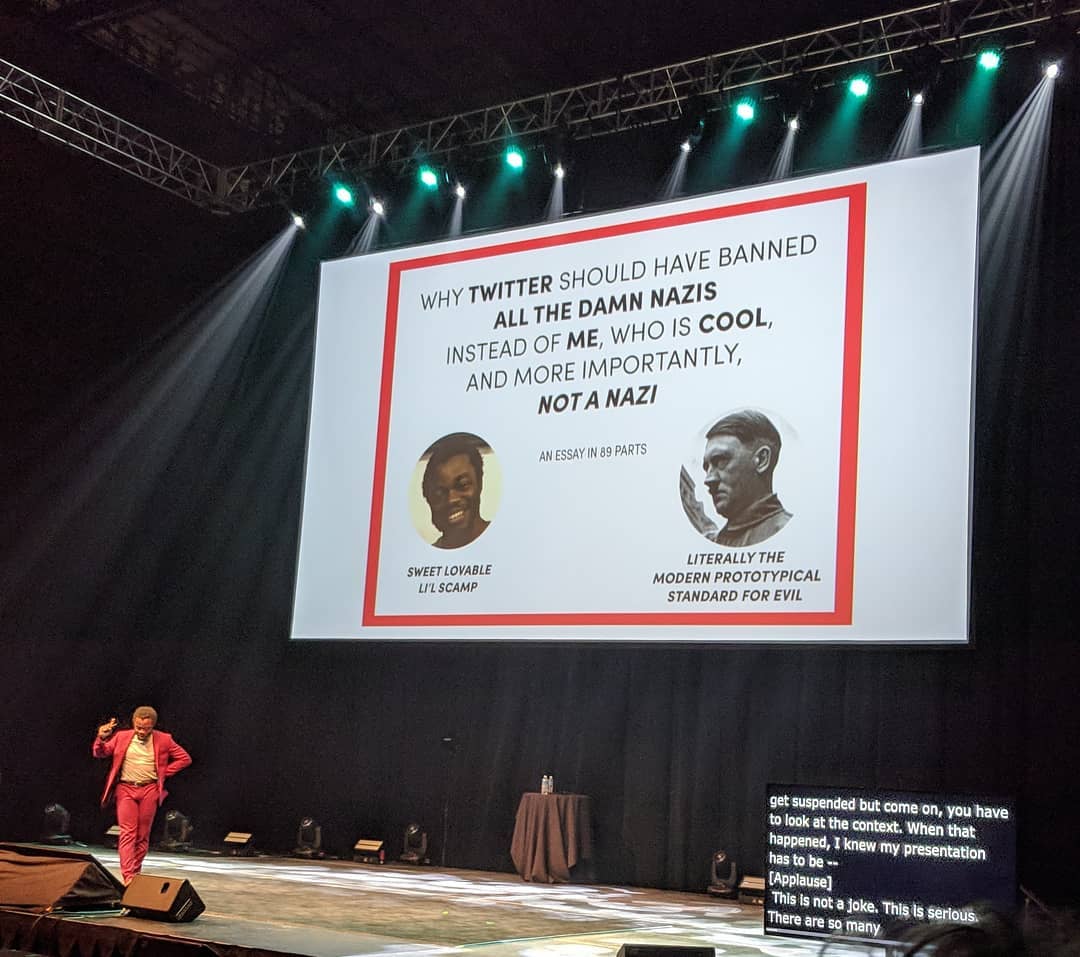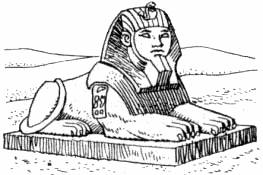XOXO notes

I took fewer notes this time at XOXO - spending my time feeding transcripts to twitter did not feel in the spirit of a festival where so many speakers and attendees had had their livelihoods and voice threatened by harassment on twitter - I spent more time listening and thinking than typing.
As in previous years, I came away from XOXO having celebrated people who make wonderful things online and off, and bring communities together through their creativity; creating and cherishing the publics that form around their works. I met many old friends and colleagues, and talked about the state of the web and how we can rescue it from the silos that grind it into slurry for their streams.
Hapgood talks about the web as garden and stream:
The Garden is the web as topology. The web as space. It’s the integrative web, the iterative web, the web as an arrangement and rearrangement of things to one another.
In the stream metaphor you don’t experience the Stream by walking around it and looking at it, or following it to its end. You jump in and let it flow past. You feel the force of it hit you as things float by.
XOXO felt like a return to the garden, a respite from the stream. I need to reflect on this more, and bring back the idea of Tummeling as a practice of the web as prta of my indieweb work.
Notes
I was amazed by the karaoke in the Blue Ox last night - I haven't seen that many people having fun together since xoxo 2016
my pronouns are he/him my name is Jonny, and I've never felt more like an imposter in my entire life - shout out to imposter syndrome! - repeat after me "I am not an imposter, I deserve to be here"
to make community is to seek community.I turned to the internet to look for the feeling of being in a writer's room, and I found weird twitter
the relationships we form online are real, and XOXO shows that. The internet is place for working out who you are
one of the powers of the internet is making us realize we are all outsiders, but we're all outsiders together.
people follow me expecting humour, but I can retweet things about social justice written by people who are smarter about it than me, and be the trojan horse
I've been thinking about tweets as things that create conversation spaces - you create a little micro community in the replies to a tweet
I pitched "everyone's an aliebn when ur an aliebn too" as a little funny book of comics, but I wanted to adapt the narrative structure of a the twitter timeline to a book
the alien comes to earth and meets a lot of characters, and then you see updates from them as you move through the book
take the things that you are experiencing online, and translate them into different mediums
when I was in college all my classmates were all dreaming of a New York Times wedding announcement, and I was dreaming of a New York Times obituary
you can join the Unicode Consortium as a non-voting member for $75
Emoji is OK at nouns, emotions and active verbs, but it has no notion of I or You
in 2015 there were only 4 roles women could play on the emoji keyboard - Princess, Bride, Dancer or Playboy Bunny
I have a female friend who is also a CEO who says "I can't see the point of being a mom - it doesn't scale"
children now talk with emoji before they use words - it is a pidgin now, but they will make it a creole
people pushing back on emoji that represent others is a failure of theory of mind
Are next speakers ate he creators of the Reductress -the first and only satirical women’s magazine, brilliantly skewering condescending and outdated popular tropes in women’s media with cutting humor
the mission of reductress was to take the outdated perspectives of women's media and put them up against our actual lives and thoughts about them
the more we satirized experiences, the more we realized what wasn't being talked about - we could identify social issues that weren't being named
in the sketch comedy world we found we were one of the only women in the room, so these shared experiences wouldn't land, online they could
the joy of satire is that the trolls get confused so their responses can be part of the joke
we did a home page takeover about rape culture - it meant we could talk about rape with the power of the group behind us
see if you can find things that aren't being said, and find ways to articulate them in your community
Marketing is defined by Webster's as "selling shit" Direct marketing is "telling people you have shit to sell" B2B Marketing is telling people who sell shit to sell your shit
This next talk comes with a content warning for racism, nazis and depictions of graphic violence - Matt Furie created Pepe the frog, and had to fight back when it was taken over by white supremacists
Pepe was one of four characters in a comic called Boy's Club - he likes to smoke weed, chill and fart with his buddies
I was used to Pepe being reused as an internet meme, but the political dimension took me by surprise
When Pepe got put on a list of hate symbols of the alt right, I got my friends to make peaceful Pepe memes
I realize that you need to be the change you want to be in the world and follow your bliss, but free legal counsel is pretty sweet
Matt is the chillest person I have met in my entire life
With reason, dark humor, and fabulous costumes, ex-academic turned video essayist Natalie Wynn makes ContraPoints, her YouTube channel tackling social justice issues with an eye towards reaching wider audiences than progressives alone
I'm a YouTuber - I don't like the word because it is associated with people who film dead bodies, but that is what I do and how I make my living
I had just dropped out of a Philosophy PhD program, because the examined life was not worth living

People describe me as a content creator but that sounds very sterile
Twitter has been the biggest tool to get me a sustainable career, and a community to help me figure out what is funny
Twitter is an incubator for everything good and bad— it magnifies marginalized voices, and magnifies all your fuck ups too
Twitter gets us all closer to each other but it also becomes a megaphone for the worst people
Comedy can't exist without the space between the laughs. When everything is funny, nothing is comedy.
I get upset with people insist on only communicating with me by referencing my jokes, because subconsciously I know that is what I have been doing.
I grew up on the computer, and when the web came along, it was my country
But it stopped feeling safe for me a couple of years ago - I researched the history of technology to find a lineage of women to look up to
This is my friend Stacey Horn who founded a BBS in the 1990s -East Coast Hang out - echo
back in the 1980s there were only about 10% women on line, and many of us hid behind male handles so we wouldn't be harassed
on echo it was about 40% women - Stacy wanted more women on echo to make it better - she made access free for women free for an entire year
when a woman quit echo she would call them personally and ask if they were OK
Online communities then were moderated by hosts - users deputized to set the tone
on echo, every conversation had both a mana and a woman as hosts
echo still exists now - Stacy never sold, franchised or IPO'd - the only to get an account is to send in the mail for a brochure
what if the architects of our present day social environments had made the same efforts about inclusion that Stacy made early on?
This is Wendy Hall - she was obsessed with this new-fangled thing called Hypertext - she was inspired by the Domesday Project from the BBC in 1986
The Domesday Discs contained virtual reality walks around places, photos and narrative about the UK in 1986
Wendy Hall built a system to navigate library images through a system called microcosm
On the web, links are contextual - they're embedded in documents - when one goes down they are broken. microcosm kept all the links separate in a database - they were an overlay on documents
in the late 1980s there were lots of hypertext systems, and nearly every one had women in leading positions
When Tim Berners-Lee presented the WWW at hypertext 1991 - they thought it was too primitive because the links only go in one direction
the web borrowed a lot of ideas from the earlier hypertext systems - it grew from a community of ideas
Computing has always been as much a women's job as a boys club
women earned 40% of computer science degrees up until 1984
if there is a boys club that dominates silicon valley today, it is an exception in time.
 Chris Mahan reposted this 8 years ago
Chris Mahan reposted this 8 years ago KTamas @ XOXO 🇺🇸 reposted this 8 years ago
KTamas @ XOXO 🇺🇸 reposted this 8 years ago 𝚂𝚝𝚊𝚌𝚎𝚢 𝙼𝚊𝚜𝚘𝚗 liked this 8 years ago
𝚂𝚝𝚊𝚌𝚎𝚢 𝙼𝚊𝚜𝚘𝚗 liked this 8 years ago suldrew @ xoxo liked this 8 years ago
suldrew @ xoxo liked this 8 years ago The Dark Matrix liked this 8 years ago
The Dark Matrix liked this 8 years ago